Table of Contents[Hide][Show]
If you’re reading labels (and I hope you are!), you’ve probably seen “propylene glycol.” It’s either on your skin and hair care products—hopefully, those you’re not using anymore! Here’s what this ingredient is and why it’s best to avoid putting it on your body.
A Few Crude Oil By-Products, Anyone?
Propylene glycol (PG) is used in liquid foundation, spray deodorants, moisturizers, lipsticks, suntan lotions, shampoos and conditioners, baby wipes, and more. Strangely enough, you’ll also find it in your antifreeze, brake and hydraulic fluid, floor wax, and paints.
PG comes from propylene, which is a chemical produced as a side effect of petroleum refining. Yes, I’m talking about real petroleum, or crude oil obtained through oil drilling. It can also be manufactured from natural gas.
5 Little Known Natural Skin Care Ingredients That Will be Mainstream in 5 Years
From propylene, chemists can create a variety of products, including polypropylene (used in plastics), and propylene oxide, from which we get propylene glycol. PG can mix with water and is considered non-toxic, so companies use it in a variety of ways:
- Solvent– which helps one ingredient dissolve into another, producing a solution
- Stabilizer– helping to keep products constant at various temperatures
- Emulsifier– which helps mix together a variety of ingredients
- Humectant– helping formulations to attract and hold onto moisture
Because it can do so many things—and because it’s economical—propylene glycol is used across several industries. It may show up in your processed foods and beverages, makeup, liquid and spray medications, and pet food. This isn’t necessarily bad, but it does raise some questions. Is this stuff really something I should be using on my skin?
Contributes to Dry Skin Over Time
Like mineral oil, which I wrote about in an earlier post, PG forms a sort of seal over your skin, preventing the escape of water. (Note that it doesn’t add any moisture to your skin.) Meanwhile, it attracts and draws moisture from the lower layers into the top layer, helping your skin appear smooth and soft. Great for a short time, but as you use more and more, those lower layers gradually dry out. Your skin appears dull, exacerbating the look of any fine lines or wrinkles.
PG also tends to sit on the surface of skin after you rinse it, dissolving the fats and oils your skin needs to stay nourished. Your skin reacts by becoming parched and dry and requiring more applications of moisturizer. This makes skin dryer, and requiring more moisture. It’s a vicious cycle.
What’s Getting Into Your Bloodstream?
PG also enhances penetration. That means the cream or lotion you’re using is more likely to penetrate the surface layer of the skin and go deeper. Sometimes even into the bloodstream. So far we have no scientific studies on the long-term effects of our exposure to this chemical. But we do know that other similar chemicals—like bisphenol-A (BPA) and triclosan—have been found by the Centers for Disease Control and Prevention (CDC) to accumulate in the human body.
One more thing: According to the Material Safety Data Sheet on propylene glycol, the chemical is a strong skin irritant, and has been implicated in contact dermatitis. The sheet goes on to warn that the ingredient can inhibit skin cell growth and damage cell membranes, causing rashes, dry skin, and surface damage.
My Advice
It’s easy to avoid this ingredient. Just look for it on the label. Better yet, buy from reputable, organic skin care brands that are more conscientious and selective of the ingredients they use in their formulations, like our line of wildcrafted, non-toxic skin care. Give your skin real nourishing, moisturizing ingredients and I think you’ll notice the difference right away!
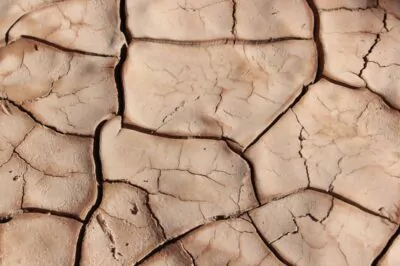

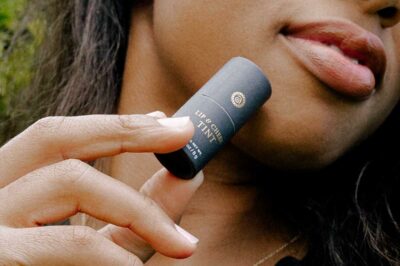
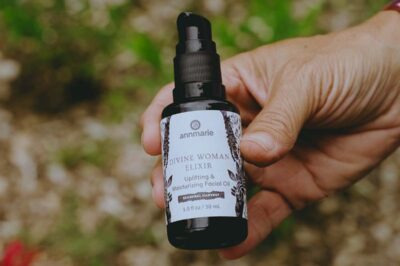
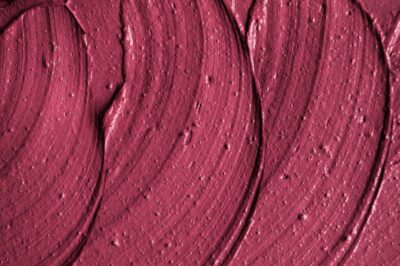


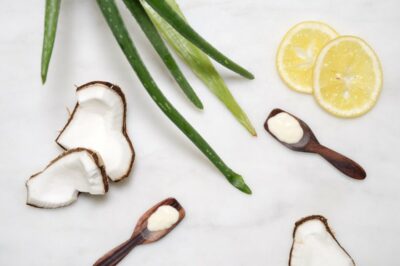
I recently purchased Nature Made vitamins for hair, skin and nails. After taking about three of them my nose started to bleed, and when I went to bathroom there was blood on the toilet paper. Nature Made is not supposed to have any chemicals in their vit. But when I looked at ingredients it had propylene glycol listed. I then called the company only to be argued with. Oh it couldn’t be the P. G. But they would send a postage lable to send the remaining vit. back to them. I did and got a letter thanking me for contacting them they would be reimbursement for 5.88. So that was that. But after I stopped taking the vit. I stopped seeing the blood. I am convinced it was the P.G. that caused it.
ok what other solution is available that is cheaper than organic moisturizers everyone cannot afford organic to use consistenly and consistency is needed for a product to work
Hi there!
If you’re looking for a moisturizer that’s not super expensive, try making one! A carrier oil that works for your skin type with a couple of drops of an essential oil that you love makes a really effective and inexpensive moisturizer 🙂
We have a lot of DIYs on our blog for every type of skin care product in your routine! We encourage you to look around there for inspiration.
Can you use it to revive your mascara???
I recently found out i am allergic to Propylene Glycol, which is very unfortunate for me because most of the products contain this chemical. It is become a nightmare for me to find products without it. When I enter in contact with it, my neck, arms, chin, etc star itching a lot that can not stop scratching myself.
There is any trusted website I can visit to have a list of products NOT containing this chemical?
Hi Sarah,
We don’t use propylene glycol in our products at all 🙂
Hi Sarah,
I’m not sure of a list of products without propylene glycol. We certainly do not use this ingredient and we suggest reading the ingredients on all of your products to find the one that works best for you.
Sarah these are absolutely the same symptoms I’ve developed over the last couple weeks. I’m weeding out my products but coconut oil dries me out even more. It is very uncomfortable and PG is in so many products. Have you found anything that works for you or helps?
Hi AnnMarie,
I agree with you absolutely as I have faced problem with use of PG.If you have any cure for getting rid of wrinkles caused by use of this, kindly suggest.I have used a moisturizer containing PG just for one day and havent used any other cosmetic.I am aged 33.
Even though my skin is oily, this PG has made my skin bad in just one day.
I am allergic to glycerin and all products that have it in it. Trying to find a shampoo, conditioner, lotion, shaving cream…well its been a trying time for me. Is Propylene Glycol and glycerin the same kind of things? I really need a good shampoo/conditioner for my frizzy curly hair. Every one I’ve tried seems to suck the moisture out of my hair and make things worse. I’m seriously considering cutting all my hair off! Any kind of help will be greatly appreciated!
I just found out I am alerbic to Pg,started in September 2015. I had very expensive patch testing done. My face looks like someone burned it. I have been reading all lables. It is in everything,deoderant,lotions,hair products,toothpaste,mouth wash. It is even in the brand vanicream and that is supposed to be chemicle free. It is really bad and I have been going through a lot of emotional pain. Spent thoysands of dollars on doctors,medication and personal time off work. This is a product you do not want to be alergic to. People look at my face and can not beleive how bad it looks. Still trying to find new products.
Katie, you said you are allergic to propylene glycol, I can empathize, you poor thing. It must be terribly painful physically & emotionally. Try using plain egg whites if skin is to oilly, or pure coconut oil if skin is to dry. If skin is burned from anything, use local Honey, it heals burns. Just don’t use honey from China. It may be cheaper but may cause harm. And u can brush teeth w. Baking soda & peroxide, that’s safe & whitens teeth. Propylene Glycol is what Anti-Freeze is made of & it can kill if ingesred. Hope this helps you. ????
Propylene Glycol is abosulety a bad substance to apply on skin.I never use cosmetics/makeup on skin.Once day, I bought a product (moisturizer) for daily use (which contained propylene glycol- I was not knowing about this that time).On applying, it was nice..It looked like my face was moisturized and glowing.The very next day morning, I had cracks and wrinkles on my skin due to moisture loss and the wrinkles have been permanent now.I have been trying to get rid of wrinkles through home remedies and struggling with it for around 2 months now.
My skin was absolutely without any wrinkles before the use of that product.The product had no other harmful ingredients apart from sorbitol solution and propylene glycol.So the statement made that it sits on the surface on the skin to dissolve fats and oils and penetrates to skin only to dry it out is absolutely a correct statement..No need of any scientific evidence for this……
Sorry AnnMarie but your article is very inaccurate and misleading. Not sure what is your background, Placing the incorrect statements in wrong context is definitely not scientific. It is a GRAS material well studied scientifically. I do agree that in cosmetics are some ingreadients that do not necessarily belong there, but in this case you are barking at the wrong tree. Sorry, but I really disagree with your explanation as a chemist and formulator myself.
Propylene Glycol has been shown to cause death in mice due to sepsis in the presence of lipopolysaccharides,(endotoxins), so including food products containing PG with others that contain endotoxins, e.g. hamburgers, can lead to inflammation and other adverse effects.
I wonder about how very expensive products such as Skinceuticals can get away with putting propylene glycol in their Vitamin C facial product? It’s right there listed on the label.
Thank you I read the label on those pricey creams that claim miracles and it is the first or second ingridient
Hi, I want to know the penetration effect of propylene glycol on cellophane?
I will attempt to give my comments on this topic, been a little bit on defense of personal care formulation.
I agree in using more natural ingredients, but most of them passed trough a chemical process somehow.
We should be more worry about environmental issues. Chemistry should be more environmental friendly and sustainable.
Propylene Glycol is been using in personal care formulation for many other purposes than for moisturizing our skin; example: to reduce viscosity, to dissolve and prevent crystallization of materials, to prevent frizz of product during cold weather etc.
Take in consideration that in most of the creams and lotions the moisturizing and conditioning properties are given by other ingredients such; oils esters, butters, glycerin etc. and not by the propylene glycol.
Hi, I’m wondering if the PG used in skin care the same as those used in food? Since PG is a petrochemical, how could there be food grade PG? Isn’t it harmful to consume then?
Just a thought this chemical is used in my acne skin care product and for people like me who have oily skin it helps and drys out my skin for the better
It was helpful:)
Think about it – if this chemical succeeds in drying out the skin, the customer will need to apply more and more of it to look good, and that is how companies keep the demand for their products intact and/or growing. It’s strategy! It’s the same idea of putting MSG in junk food – a chemical that works in the brain to produce a craving and to plant itself in one’s memory for the taste of that particular food.
I just recently found this chemical in “no gray” which I use to enhance the dye on my gray hair. I really liked the product until I noticed that it contained propylene glycol. Very disappointed and fed up with reading labels to include cleaning products, food products and hair and body products. I spend a lot of my life in the stores reading labels, unfortunately.
[…] are these personal care companies thinking?? Oh sure, can I please have some parabens, propylene glycol, dioxane, sodium laurel (SLS), artificial dye, artificial scent, acrylamide, lanolin, and some […]